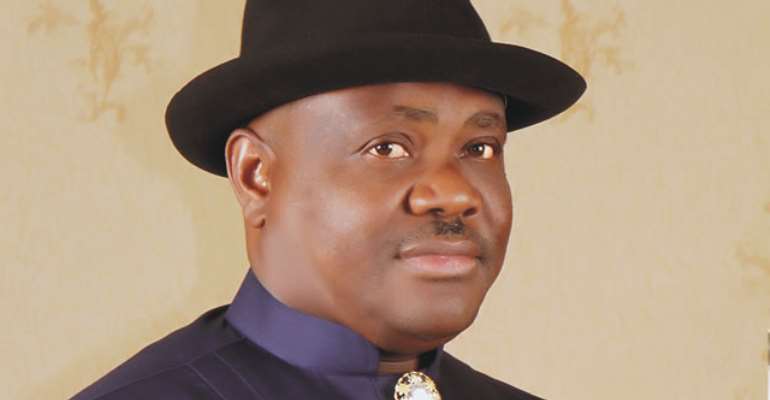Beheading of policemen in Rivers State – Punch

Rivers State is on a knife-edge. Its security architecture was sadistically subverted at the highest level during the December 10 national and state assembly rerun elections. Hoodlums - called cultists in local parlance - warred against the state on several fronts, shooting, bombing, and snatching electoral materials and ballot boxes. Their most bloody and bestial escapade occurred in Ujju, Ogba/Egbema Ndoni Local Government Area, where they ambushed a police patrol team and beheaded two officers. It is an unmistakable sign of a failed state when criminals upstage the security forces and shed their blood with impunity.
The police represent the symbol of authority of the state: they protect, prevent crime and prosecute offenders. But it is not so in Rivers State. Instead, the police are now easy prey for felons. The killing of policemen, however, portends serious danger: if they are mercilessly murdered, how will ordinary, law-abiding citizens protect themselves?
Rivers State has become notorious for election violence. This is a terrible baggage, but it is unquestionably true. The beheading of Deputy Superintendent of Police, Mohammed Alkali, and his aide, Peter Uchi, is a grim confirmation of this bloodcurdling trend. No country surrenders its authority to criminals, as is being witnessed in the state.
Nigeria continues to demonstrate its weakness by allowing criminals to shed blood without let, and it often does nothing to enforce its authority. All we have witnessed so far is a semblance of state control. Obviously, this does nothing to tame crime. Apart from State Security Service agents, military and Nigeria Security and Civil Defence Corps personnel, the Inspector-General of Police, Ibrahim Idris, deployed 20,000 officers, 20 gunboats and three helicopters for the rerun. In a normal election, this was more than adequate.
Yet, violence erupted uncontrollably in several places, especially in Khana, Oyigbo, Ogu/Bolo and Ikwerre LGAs. The Independent National Electoral Commission, which conducted the rerun, appropriately cancelled the polls in several units because of the brigandage. But some of these areas should have been identified as flashpoints and adequate undercover and overt operations staged to foil attempts by hoodlums to disrupt the election and kill.
Kasimu Abdulkarim, the General Officer Commanding, 6 Division, Nigerian Army, laid bare the security conundrum in the vicinity where Alkali and his aide were beheaded. He said, 'The patrol vehicle was taken away with weapons; three policemen escaped, while five were missing in action…. This is the same area where soldiers of 34 Brigade were ambushed on November 20 when a soldier was killed. Also on November 21, four personnel of the NSCDC were killed and their weapons carted away.' This is frightening.
Violence assumed an alarming dimension in the run-up to the 2015 general election, in which about seven people were killed in the same Rivers State. As a result, INEC suspended legislative election in eight of the state's 23 LGAs. Perceptively, the European Union Election Observer Team had condemned the violence that occurred during the polls, stressing it was 'most pronounced in Rivers and Akwa Ibom (states).' Normally, government should have investigated the mayhem and prevented a recurrence.
The March 2016 rerun was not different. Gun battles, destruction, arson and death marked it. A National Youth Service Corps member, Samuel Okonta, who served as an ad hoc INEC official, was brutally murdered, prompting an indefinite shift in the polls. An election is not war. African countries like Ghana and The Gambia just concluded elections, while violence is not part of elections in Europe and the United States. Nigeria should not be different.
The blame for the ongoing criminality in Rivers State lies with the government. The Nigerian state is too weak. Any group can undermine it at will. This is dangerous. In May 2013, the Ombatse cult slaughtered 10 SSS officers and over 60 policemen in an ambush in Nasarawa State. Weirdly, the SSS said it 'forgave' the murderers. Just this month, Idowu Taiwo, a Superintendent of Police in the Ekiti State Command, was murdered by criminals. Solomon Sunday, a corporal in the Ondo State Command, was also gunned down by rival street gangs.
In Rivers, arrests have been made by the police. Yet, they had made several arrests in the past, but the lack of will to prosecute the criminals undermines the integrity of our elections. But it is a little comforting that this IG is talking tough. Idris said, 'I want to assure this country that we will leave no stone unturned to ensure that those found indicted in this investigation, no matter their status, are going to be held responsible for it. These people were killed, not because of any personal issue, but because they answered the call of duty to serve … It is sad that their lives had to end like this.' It will be a huge relief if the IG can deliver on his mantra. Recently, he lamented that 128 policemen were murdered by criminals in the line of duty in the three months to November.
The political parties - particularly the All Progressives Congress and the Peoples Democratic Party - are culpable. Governor Nyesom Wike (PDP), John Odigie-Oyegun, the APC Chairman, and Governor Abdullahi Ganduje of Kano State behaved irresponsibly on the campaign train ahead of the polls with their belligerent postures. Both parties incited the voters unnecessarily. This is bad leadership. There should be a way to sanction politicians who encourage violence in their bid to win elections by all means.
Really, the brigandage in Rivers State foreshadows the testy days ahead of the 2019 general election. Save for the 2015 general election, voting in the country always resembles war. This is worrisome. For things to change, anybody that kills must be brought to book speedily. This is the only language that criminals understand.
